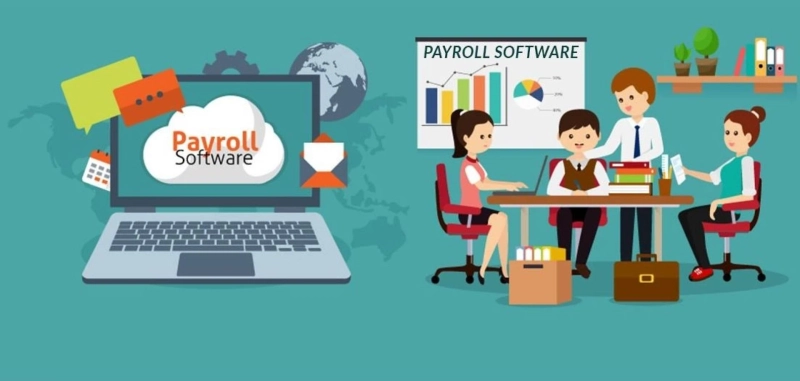When your business processes employee data, it’s critical to safeguard the information you store. This includes social security numbers, addresses, and other personal information that could be stolen if it falls into the wrong hands.
Fortunately, automated payroll software vendors take security seriously and have systems in place to ensure your data is safe from hackers. But before you make a final decision, be sure to check for these basic measures.
Secure Data Encryption
Data encryption is a critical part of preventing unauthorized access to information stored in your payroll system. This protects your sensitive data from phishing and ransomware attacks.
Cloud-based payroll software offers secure connections to servers using SSL (secure sockets layer) technology. This ensures that all data transactions are encrypted so that no one can read them, no matter what device or operating system they’re using.
Moreover, cloud-based payroll software can be integrated with other security features, such as password protection and multifactor authentication. This means that only authorized employees can access and process payroll data. This helps reduce risks associated with data breaches, especially when you are working remotely.
Secure Data Deletion
Security is a top priority for any business owner. Hackers, snoopers, and disgruntled employees are all too capable of stealing company data, costing your business valuable time and money in the long run.
Automated payroll software provides a host of security features that will keep your data safe, from system access control to password protection. You also need to consider the hardware that stores your sensitive data.
One of the best features of automated payroll software is a "secure delete" that overwrites all traces of existing data on a drive or boot drive when a control enclosure is decommissioned. The feature is not for the faint of heart, however, as it can take an offered employee to do it correctly. So be sure to review the specifications and ask questions of the vendor representative to ensure that you are getting the security system that your business deserves.
Regular Backups
Automated payroll software creates and maintains backups automatically, reducing your data security risk and freeing up your time. This means you don’t have to worry about data loss, hacking, or hardware failure.
The amount of data that should be backed up and how frequently it should be done depends on the type of files you have and the locations they are stored. The best strategy is to back up the most important files on a regular basis.
When choosing a backup system, ensure that it can be easily set up and used by anyone in your organization. It should also offer storage space that is flexible and secure. This will allow you to adjust your backup and restore strategy as your business grows or changes.
User Access Controls
The ability to set user access limits is one of the important aspects of payroll security. Without limiting access, employees can make changes to their paychecks themselves and can do so without a manager’s approval.
Role-based access control (RBAC) requires data teams to define roles for users, then assign them privileges and restrictions based on those roles. However, this approach makes data access control more static and less dynamic than ABAC.
As employee roles and payment structures evolve to accommodate a variety of wage earners and gig workers, flexible payroll systems will be crucial. These should be able to integrate seamlessly with time and labor, compensation, financial management, absence management, and other core business systems. They should also be easy to configure, without the need for coding or IT involvement.
Two-Factor Authorization
Accountants and payroll professionals are often entrusted with sensitive data that is critical to the livelihood of their clients. This is why it’s important to take the necessary steps to protect this information from falling into the wrong hands.
Cloud-based payroll solutions that are automated can help you secure and back up client information. It also allows you to delegate and limit user access to ensure that only authorized people can access this data.
Two-Factor Authorization (Two-factor authentication) is a security feature that requires an additional factor in addition to the password to verify identity. Typically, this is a phone number or email address that is prompted when logging into an account. This can be done via SMS or through a mobile app. While these methods offer a higher level of security, they aren’t foolproof. Cybercriminals can still steal these authentication factors and use them to gain unauthorized access to accounts.
Hence, you can see how sophisticated and advanced automated payroll software is in managing, securing, and storing the data of your employees.


